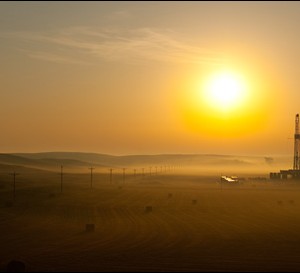The Stream, November 13: U.S., Energy, and Climate Change
According to the International Energy Agency (IEA), “by around 2020, the United States is projected to become the largest global oil producer,” according to their World Energy Outlook 2012 report. According to Scientific American, “easier access to more oil and gas could cause a surge in global greenhouse gas emission levels, which could trump recent reductions seen in the U.S. and Europe.”
Reuters says the U.S. “fiscal cliff” budget debate has brought carbon taxes back into political focus. As Congress looks for ways to avoid imminent spending cuts and tax increases, one option gaining attention for revenue is a carbon tax, or “a mechanism to charge emitters of greenhouse gases, such as power plants and oil refiners, for each ton of carbon dioxide they emit.” In a recent report from the Congressional Research Service suggests that a “$20 per ton tax on carbon emissions could halve the U.S. budget deficit over time.”
From the Council on Foreign Relations, Michael A. Spence explains why climate change and frequent extreme weather patterns require better investment and development of resilient infrastructure in the U.S.
Post-War Jaffna Faces Water Overexploitation
IPS News examines the role that civil war played in the development of the city of Jaffna, Sri Lanka. As residents new and old flood into the town, the demand for water resources is increasing. Studies of the city’s water balance last year shows that extraction levels were almost 20 percent higher than the recharge rate, which means the water resources are being overexploited.
Tanzanian Youth Flock to Cities During Drought
AlertNet reports that every day more than 100 young adults migrate from rural areas to look for work in Dar es Salaam, Tanzania’s largest city. Why is this urbanization pattern happening? AlertNet says “Climate change is one of the principal reasons that people are abandoning their traditional livelihood of farming, experts say.” Droughts, poor harvests have lead many to abandon their agricultural endeavors in hopes of finding prosperity and security in the city.
The Stream is a daily digest spotting global water trends. To get more water news, follow Circle of Blue on Twitter and sign up for our newsletter.
is an editorial intern for Circle of Blue based out of Traverse City, Michigan. She holds a BA in International Relations from Michigan State University’s James Madison College. Her interests include water pricing, environmental economics and policy, and conflict mediation.




Leave a Reply
Want to join the discussion?Feel free to contribute!